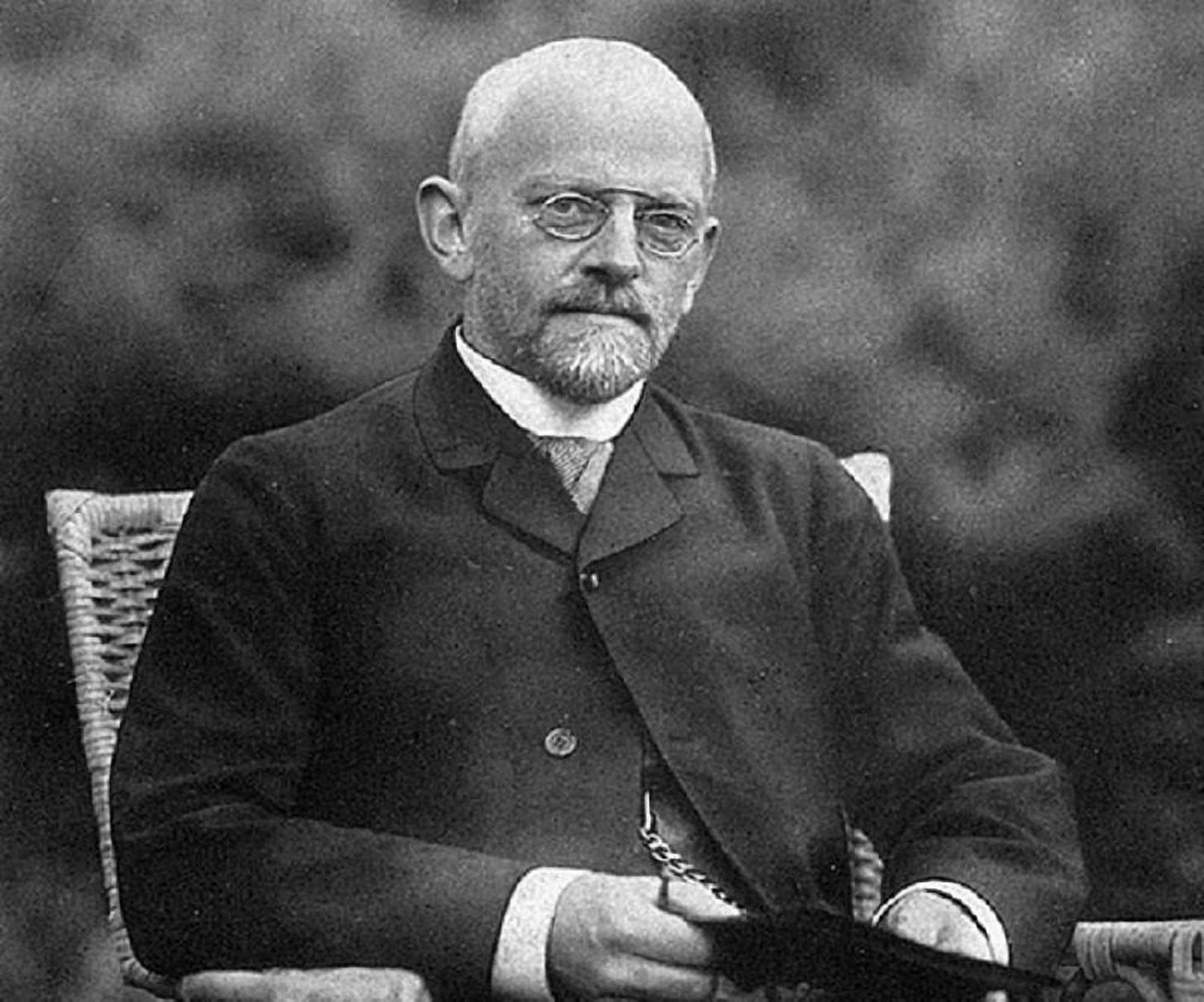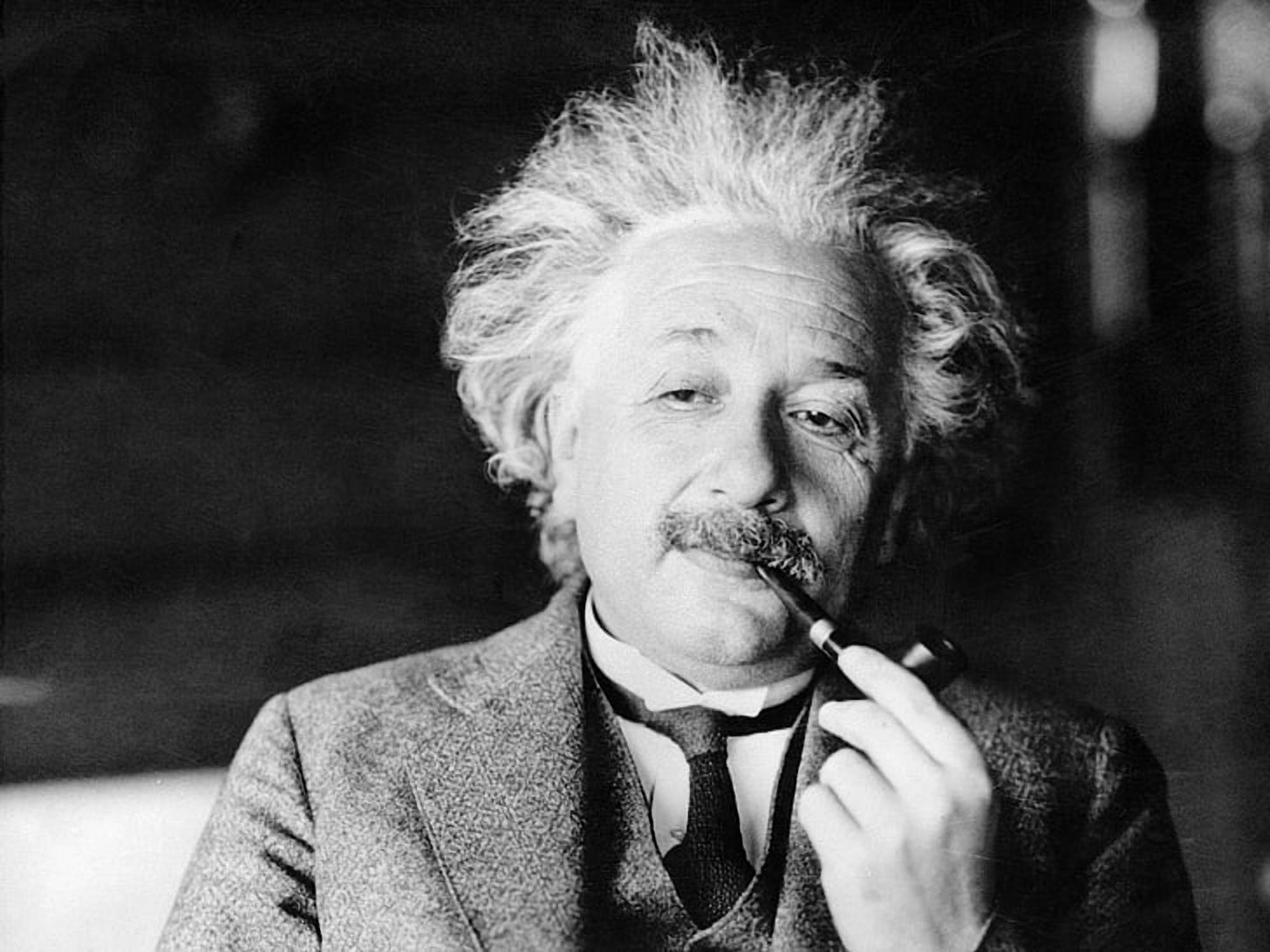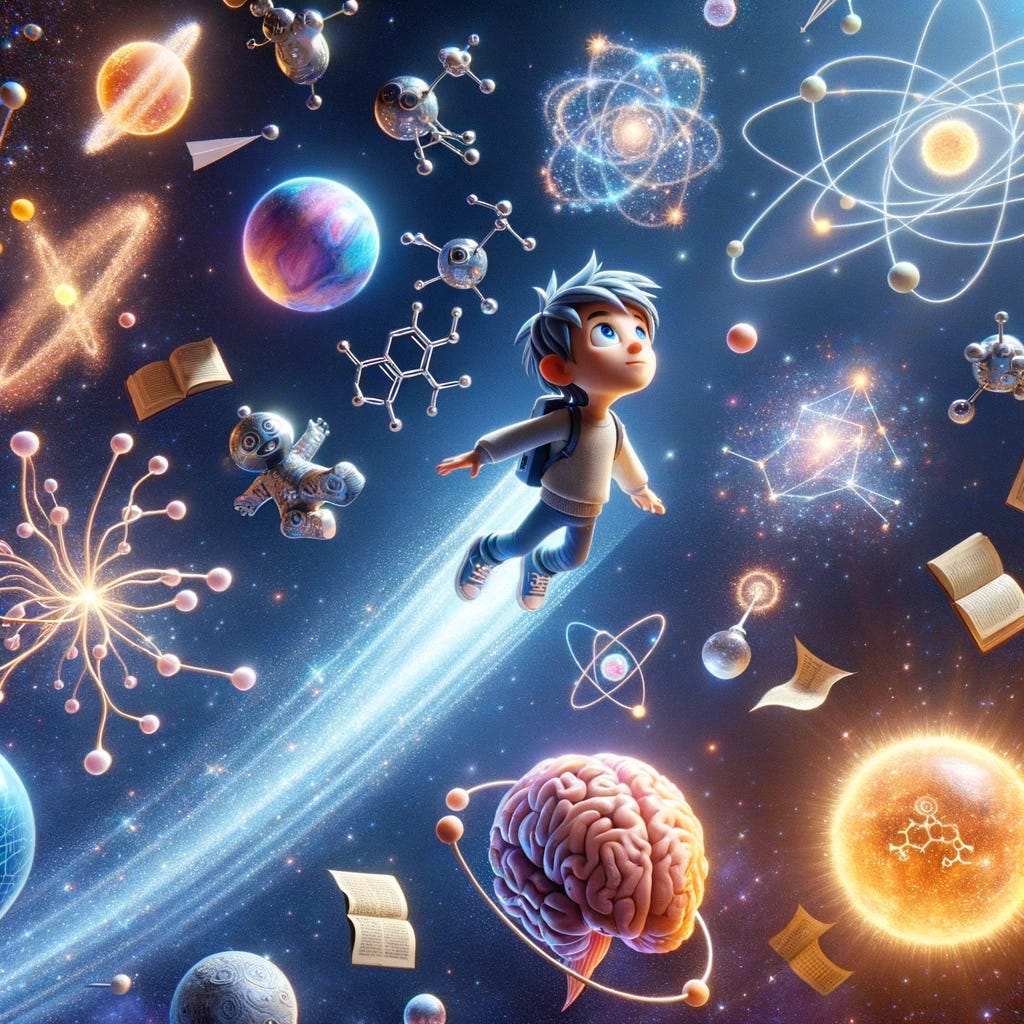Every boy in the streets of Göttingen understands more about four-dimensional geometry than Einstein.
David Hilbert (German Mathematician)
I’ll get back to this quote.
I'm no mathematician but I usually kickstart my day by solving math problems as the first order of business. Engaging with abstract problems bright and early primes my brain for analytical thinking and problem-solving. It’s like a mental workout that sharpens my cognitive abilities, making it easier to tackle more complex tasks and enhance my focus throughout the day. But not today! Today, I'll delve into the anatomy of a creative genius.
Rooting for an India Where Innovation Thrives
I'm fiercely patriotic in a way that I root for everyone around me to win. I want my tribe to win in life. And I won’t lie, there’s a selfish angle to it. If people around me are doing well, then their kids and the next generation will have a better education, a higher standard of living, better health, and cleaner, safer neighborhoods with less crime. It leads to a more compassionate society. Even the stray animals in our community would be safer. I adore animals! It's a win-win for everyone!
Here's the deal: The nation that leads in innovation often climbs the ranks to become the most developed. India does not rank highly on the Global Innovation Index. I won't pretend these rankings aren't biased. The Index proves nothing definitively, but it aligns with what I've observed - that innovation simply isn't in India's DNA. I don't need a glance at the Global Innovation Index to discern that innovation isn’t India's strong suit as a nation. Having lived here my whole life, I have seen it firsthand.
Of course, there are exceptional individual innovators in India, but broadly speaking, innovation doesn't characterize India predominantly. A handful of ingenious minds don't make up for a lack of creative thinking permeating society. The country won't progress until innovation is a cultural norm.
Now, I don’t intend to come off as insensitive. There are likely complex sociocultural factors at play here, which would require extensive research and a book-length discussion to cover fully. That's beyond the scope of this post. However, I do want to highlight one potential reason for this situation.
Innovative thinking is sadly not prevalent in mainstream Indian culture. Right from the outset, Indian children are seldom encouraged to be innovators. Instead, they are groomed to take pride in acing challenging exams like IIT JEE, CAT, UPSC, and the like. This conditioning runs counter to innovative thinking, churning out wonderful employees great at obeying orders and conventions but it doesn't exactly nurture the rebellious innovators and leaders within. They are great at following directions but not so much at forging new paths.
Independent and creative thinking is stifled early on in India. The fallout is that we don’t see a plethora of creative geniuses emerging from India in mainstream leadership roles.
Understanding Creative Genius Through Einstein
But what does it mean to be a creative genius? Who qualifies as one? How can we tell? This essay will explore those questions through the quintessential creative mastermind, Albert Einstein. Unfettered imagination and intellectual autonomy were what Einstein was all about. Through his example, we will unpack what makes a creative genius. But before that…
Trying to be The Topper Can Stunt Your Creativity
The brain capacity used for core competency comes at the cost of bandwidth for creativity.
I actively discourage students from trying to be a topper. The trade-off is creativity, which is not worth it. When you are trying to be the best at a trivial exam, you end up overfitting yourself to the syllabus and exam patterns and forget to be original.
You are optimizing yourselves for performance on those specific tests, a skill set that does not easily transfer to real-world innovation and invention. You are playing safe, instead what you should be doing is taking intellectual risks if your goal is to have an impact on the world.
You end up confusing the means (scoring well on exams) as the end goal. You get stuck competing on existing ladders rather than creating new ladders.
Screw the test scores and don't just climb ladders but create new ones!
Are You a Ladder-Creating Badass?
Optimizing to score highest in a narrow discipline or on a specific test reduces cognitive flexibility and the ability to make novel connections. As a result, there's no room for imaginative exploration and exploring connections between different disciplines.
You're trading your creativity for a number on a page, and that number won't take you very far in the long run. But creating new ladders, exploring new ideas, and taking risks - now that's the stuff that leads to real breakthroughs and growth.
Smart People are Dime a Dozen
Every creative person is smart but not every smart person is creative.
Smart people can solve problems, but creative people can create whole new worlds. Creativity is the highest-level application of intelligence.
In other words, creativity is intelligence manifested in its most inspired form. It represents the apex of human potential, the future made present.
Real-World Contributions are the True Test of Genius
Exams test how well you can apply set formulas, not how imaginative you are. Creativity and genius cannot be adequately tested or measured in standardized exams. The only real way to judge someone's creative abilities is by their actual, real-world contributions.
History remembers those who challenged the status quo, thought differently, took risks, and manifested their creativity. Ultimately, your exam scores won’t be your legacy; it’s your impact and innovation that will stand the test of time.
Boys in the Streets of Göttingen
Every boy in the streets of Göttingen understands more about four-dimensional geometry than Einstein. Yet, in spite of that, Einstein did the work and not the mathematicians.
David Hilbert (German Mathematician)
An average Indian kid is conditioned right from their childhood to become the boy in the streets of Göttingen instead of becoming Einstein. The focus is on following set formats and established knowledge. They may understand concepts but lack the imagination or boldness to break new ground.
Kids are taught to color within the lines, not to create their own masterpiece.
It's a formula for academic success, not for world-changing innovation.
The system rewards being the studious "boy on the streets of Göttingen" who excels at mastering existing knowledge within narrow domains. But true genius requires daring to challenge paradigms. This conditioning from childhood to conform hinders the development of creativity and iconoclastic thinking. Fear of failure suppresses imagination.
Indian education system focuses more on producing great students within existing frameworks rather than trailblazing paradigm shifters. No wonder so many Indians with great potential never reach it - they're too busy being the good kid in class rather than channeling their inner Einstein.
Creative Geniuses vs. Rigid Thinkers
Creative geniuses and innovators are often intrinsically driven by their passions, curiosity, and vision - not external benchmarks like test scores and grades. They are indifferent to scoring high and are attracted to challenging established rules. Rigid thinking patterns, modeled on exams, inhibit their creativity, and the fear of losing marks suppresses risk-taking.
What separates creative geniuses from someone formally trained at a high level who does not generate original work is intuition. They grasp key patterns, gaps, and new directions in an instinctive, innate way that formal training alone cannot provide. They perceive problems, challenges, and accepted rules in their field through an unconventional lens that enables breakthroughs. Formal training only provides conventional wisdom. They are not afraid to try unproven methods and learn from failures. Structured training conditions people to follow tried-and-tested methods but doesn’t necessarily build the intuition to push boundaries and create something truly remarkable.
Einstein had the same foundational training in physics as his peers, but it took an intuitionist like him to visualize riding alongside a light beam, which led to his breakthrough insight about the constancy of the speed of light - a core premise of the theory of relativity. Einstein's intuition told him that space and time were not separate entities but rather were intertwined in a complex relationship. He relied on his intuition to develop the concepts of space-time and the concept that mass and energy are equivalent.
So, we've talked a bunch about our education system's love for rote learning. But that gets me thinking - where does intuition fit in all this? I mean, can you really teach or test something as wild and free-spirited as intuition in our current setup?
How do you Teach and Test Intuition?
You don't. Intuition is not built, it emerges organically. You let it run wild. You give it space to breathe, to make mistakes, and to learn.
It emerges organically because of a range of experiences. The more diverse the experiences, the more vivid the imagination. The trick is to always be curious and learn through exploration for purely intrinsic reasons and not for some external rewards. Cross-pollination of ideas across disciplines is key.
More importantly, rather than training intuition, our task is to stop extinguishing its flame. Nurture don't crush, imagine don't conform, create don't obey.
Child-like intuition doesn't need instruction, only freedom. No more puppets on a string reciting formulas. Let their minds roam free.
Our education system destroys intuition with its rigid conformity and meaningless testing. We suppress children's natural creativity by demanding they be unimaginative model students.
Don't try to teach intuition, simply get out of its way. Remove the constraints so it can dance gloriously again.
Our nation needs more pioneers and visionaries, innovators and inventors, radicals and rebels, those who dare to question the status quo and venture into the unknown.
Albert Einstein didn’t become Einstein by following the herd. He questioned, he rebelled, he dreamt. He saw the world not for what it was but for what it could be.
We’re not interested in the boy in the streets of Göttingen who knows his textbooks cover to cover. We want the Einsteins riding the beam of light, the wild minds that dare to think beyond the IITs and IIMs, beyond the conventions and the ordinary.
Be the ladder creator, not the ladder climber.
Have the courage to channel your inner Einstein! Let your imagination run free. Question everything, even the nature of time itself!
Reject the norm, embrace the chaos of creativity, and let your intuition lead the way.








Great read mate. Einstein's own insights into creativity tell us everything we need to know. You couldn't have picked a better example. As a fellow Indian, it was gratifying to read your well-written elaborations on the problems of modern education. You're spot on. We do need to cultivate a culture of creativity and imagination. It is only then that education also becomes inclusive.
So true and relatable, I have the same thinking and I am glad to see there are people out there giving the importance to creativity and knowing that our Nation (India that is Bharat) is lacking in this area. We really need to take action to bring some positive change which will eventually help the country in the long term, and I aspire to do exactly that!